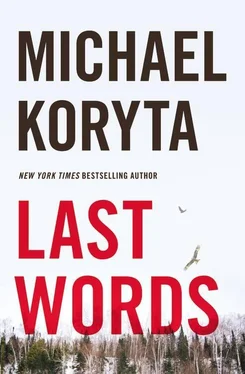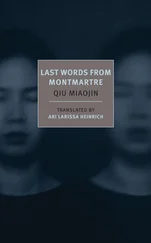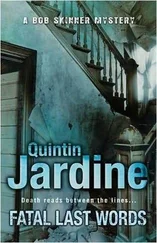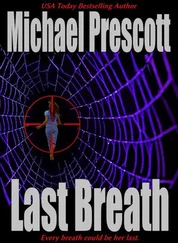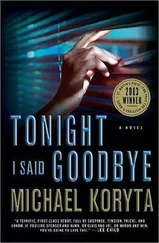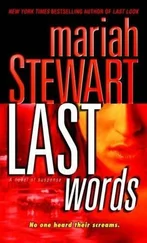Mark had nothing approaching a weapon in the rental car. There was an empty Styrofoam cup that had once held coffee; a file folder of old case notes. He wasn’t going to take these three down with paper cuts. The only weapon was the car itself, and given the way they were flanking him, even the car wouldn’t be much use. He’d force them to open fire if he drove at them, and right now there remained at least a chance that they didn’t intend to shoot.
Lauren was found outside of her vehicle on a rural road, Mr. Novak. She’d been shot.
He wanted to reach into his pocket, wanted suddenly — desperately — to feel that worn diving-permit tag that had traveled all these years with him, but reaching for anything was potentially deadly. Instead, he put both hands on the wheel and waited. It wasn’t long — the men on the flanking sides closed quickly and simultaneously through the snow, like wolves. The one from the truck walked past them and then turned to face the car.
Nobody spoke. The guy on the passenger’s side was small, maybe five six, and he seemed to like holding the shotgun, had a more aggressive posture than the others. A bantam, a little guy eager for a fight. On the driver’s side was a bigger guy, over six feet, forced to stoop to have a clear visual on Mark. Wide through the shoulders, hands so big they curled around the stock of the shotgun as if it were a handgun grip. As long as he didn’t have to catch someone, the advantage would usually be his, and he didn’t have to catch Mark. Their gray sweatshirts were identical, no brand name apparent. Just generic hooded sweatshirts. Generic black knit masks. No telling features. The black pump shotguns were probably twelve-gauges, nothing fancy or expensive. Like the sweatshirts and the masks, the shotguns matched. Nobody was allowed to be an individual in this group, and that was troubling, because it was smart.
The man from the Silverado stood directly in front of the Ford, feet spread wide to give him a good base, his shotgun held at belt level, pointed at the windshield. His finger on the trigger. The wind raised the snow from the road and swirled it around him like a protective force.
It’s his show, Mark thought. Whatever happens from here, it’s his decision.
“Get him out.”
When the command came, the big man on the driver’s side cradled the shotgun against his shoulder and held it in one hand so he could free up the other to grab the door handle. That would have been Mark’s best chance, nine out of ten times — when the attacker had one hand off the gun and was opening a door toward himself. Mark could help the door along, kick it into his face and knock him off balance, or at least knock the gun out of his control long enough for Mark to get his hands on him, but this wasn’t nine out of ten times. This was the tenth, when you had shooters on every side.
The big one pulled the door open only to have the wind try to push it shut again. He wrestled it back and got one leg inside, trapping it open.
“Step out.” He had a voice that suited his frame. Loud and deep and commanding.
“I’m unarmed,” Mark said. “And you can see my hands on the wheel, can’t you?”
“Don’t care.”
“I’m just saying that if we’re talking, we can do that here.”
“We’re not talking.”
Mark nodded. “You mind if I turn the engine off? This is hell on my fuel economy.”
The big man shoved the shotgun muzzle into the car and smacked it against Mark’s forehead.
“You know what,” Mark said, “I think I’ll just get out and worry about the gas later.”
Mark released the seat belt and stepped out of the car and into the snow.
“Hands in air or hands on the back of my head?” Mark said. “What’s your preference?”
The big guy regarded Mark as if he distrusted the questions. “Back of the head. Then walk toward the van.”
Mark laced his fingers together behind his head. The gesture pulled his coat open, and the big guy took advantage of that to frisk him. The wind rose to a scream, and Mark shivered involuntarily.
“Cold,” he said. “Wouldn’t mind having one of those masks myself. Maybe you could take yours off and let me borrow it? Would be thoughtful, considering you’d still have your hood.”
A shotgun-muzzle jab to the forehead again. He heard his teeth click together as he fell back against the car, and he bit his tongue and tasted blood. He sucked the blood to the front of his mouth and then spit it into the snow. Looked like a small thing, but it wasn’t. That copper-flavored spit held his DNA signature, and there was a chance some detective might appreciate his leaving it behind. Dark thoughts, yes, but this was how it ended for some people. Places like this, moments like this. Men with guns on lonely roads. Sometimes this was exactly where it ended.
“Walk to the van.” That deep voice suggested there wasn’t going to be any further discussion. Mark walked away from his car and toward the van. The path took him directly into the wind, and the snow stung his eyes.
“We leaving my car behind?” he said. “Sitting there with the engine running? Seems like a good way to attract some attention. And you probably don’t want attention.”
He just wanted to talk, because talking gave him a chance to see reactions and learn more about these men behind the masks, and hopefully talking would also distract them from the way he kept spitting blood, trying to leave a trail of it as he walked. Leave a clue. Lord, what he would have given for a clue on another day and another road, one where windblown cypress leaves cast rippling shadows.
“Don’t worry about your car,” the big man said. He was walking with Mark; the bantam had stayed behind, and the headman was motionless, waiting.
“It’s just that, you know, I never spring for the full coverage,” Mark said. “Saves a few dollars, but it does make me worry.”
They reached the point man. He was about Mark’s size, maybe an inch taller, and thinner, but in a rangy way. The sweatshirt was too big for him, hanging loose.
“We could have this talk,” Mark said to him, “without me getting in the van.”
The other man didn’t respond. The bigger one jabbed Mark with the shotgun again, a hard shot to the kidney, and while it made him wince and stole his breath, he took a sad pride in the fact that he stayed upright and didn’t lower his hands.
A crunching sound came from behind them, and Mark turned to see that the third man, the smaller guy with the tense nerves, had climbed behind the wheel of the Ford.
“I’m afraid I can’t allow that,” Mark said. “It’s nothing personal. It’s not even my rule. The problem is with Hertz. They want you to identify everyone who is going to drive the car. So maybe if I could just get a real quick look at his driver’s license, that would be enough to—”
This time the blow knocked him down. Mark fell onto his knees in the road. He still had his hands clasped behind his head.
“There might be some confusion,” he said, “about what I’m doing in your town. I’m sure we can straighten it out. I don’t intend to stay here. I never did.”
When the thinner man without gloves nodded, the next blow came almost immediately, and the world wavered away. There was pain and there was darkness and there was cold, but not much else. Mark had a vague awareness of being lifted. They dragged him around the back of the van, and he thought, License plate, but his vision couldn’t anchor on anything, and then there were two metallic snaps and he thought, Kill shot coming.
No gunfire followed, though. He was lifted higher and then shoved into darkness and he realized the metallic noises had been the doors on the back of the van, and now he was inside of it. He tried to bite down on his tongue again and missed it somehow — how could you fail at an attempt to bite your own tongue? — but found his lip instead. He was satisfied with that, and he ground his teeth until he tasted blood again. That was the only thought he could hold in a mind that was swimming in and out of consciousness: he wanted to leave blood in their van. A strange hope, the polar opposite of what he should want to happen, yet he knew what it could mean to someone later. Without forensic evidence, good luck. Without forensic evidence, cases stayed open. Murderers stayed on the streets. Questions added layers of grief. He was determined that a lack of forensic evidence would not be a problem for anyone working his case.
Читать дальше
